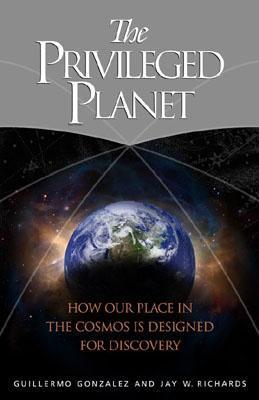What do you think?
Rate this book


464 pages, Hardcover
First published February 1, 2004
[Imported automatically from my blog. Some formatting there may not have translated here.]
I was prodded to read this book by this article at the Weekly Standard website, alleging that one of the authors, Guillermo Gonzalez, was denied tenure at Iowa State due to his outrageous personal views, as expressed here. As it turns out, the UNH Library was broad-minded enough to score a copy, so it was a low-risk venture to check it out.
Gonzalez is an actual astronomer, but the book's viewpoint is well outside scientific orthodoxy. It makes the argument for so-called "intelligent design", at least in in a (non-biological) specific area. The argument is that our lovely planet is the result of a long combination of extremely unlikely events, way too many to be the result of accidental chance. Not only is our environment well-suited to intelligent life, but it's also well-suited for that intelligent life to make discoveries about itself and its universe.
While Gonzalez is a member of the Discovery Institute, a well known anti-evolution organization, there's not much of that in the book; theology only raises its head to be disclaimed. Instead, it's a wide-ranging examination of the science behind "all the things that had to go right" in order to put you and me in the here and now. And there's no denying that it's a pretty impressive list.
Unlike (say) creationists, Gonzalez comes off as pro-science; he's very willing to look at all the evidence, and he knows his way around the literature. But he doggedly wants to put "design" on the table as a valid scientific hypothesis, anathema to just about everyone else in his field. It's too bad this sort of thing can't be openly hashed out without it being painted as yet another instance of the yahoos versus the scientific martyrs.
Amusing side note pointed out here: while Harvard prof Steven Pinker recently wrote an op-ed in defense of "dangerous ideas", this only came a month after his letter to the Boston Globe excorciating that paper for daring to print an article in defense of Gonzalez's views, likening them to—I'm not kidding—Holocaust denial. Anyone reading this book will know, at the very least, how inappropriately stupid that analogy is. Apparently some ideas are just too dangerous for Pinker's sensibility; maybe he should wait more than a month before contradicting himself so obviously.
Having said that, however, this Wikipedia entry on Gonzalez details the history and argues that his current performance may not have been adequate for a grant of tenure.